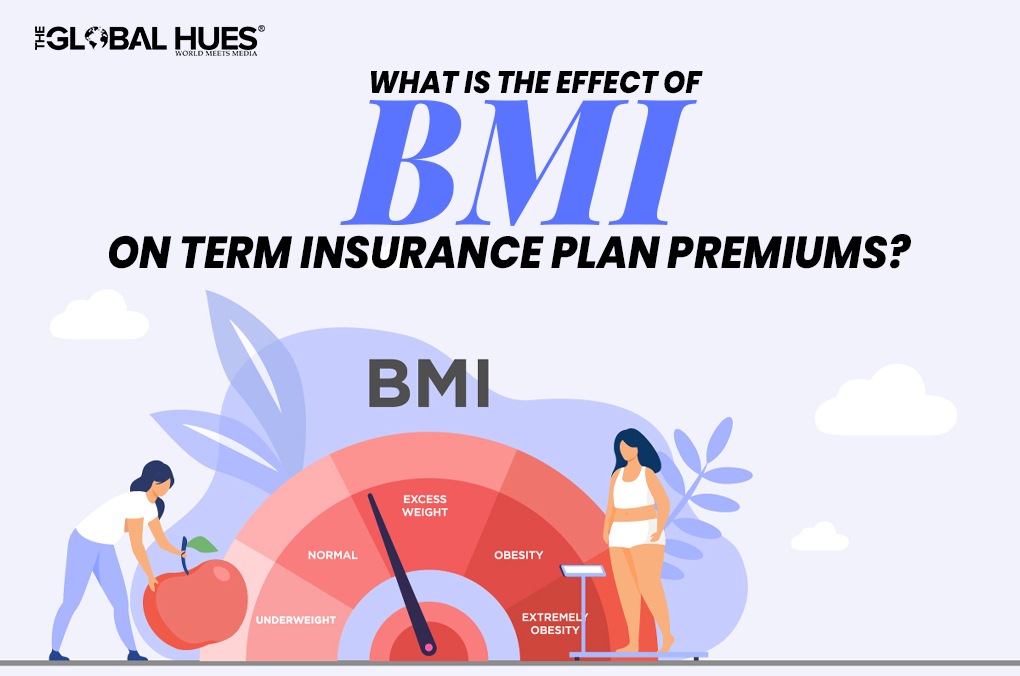Term insurance is a type of life insurance offering financial protection to your dear ones in case of an untimely death (policyholder). It is one of the most affordable and simple ways to secure your family’s future. However, did you know that your term insurance premium can vary depending on your body mass index (BMI)?
BMI refers to a measure of body fat based on your height and weight. You can use it to determine whether you are underweight, normal weight, overweight, or obese. Your BMI can affect your health, longevity, and your term insurance premium. In this blog, we will explain how BMI works, how it affects your term insurance premium, and what you can do to get the best deal on your term insurance plan.
How to Calculate BMI?
To calculate your BMI, you must be aware of your height in meters and your weight in kilograms. You can use an online calculator or a simple formula to calculate your BMI. The formula is:
BMI = {weight (kg)} ➗ {height (m2)}
Once you have your BMI, you can compare it to the standard BMI categories to determine your weight status. The categories are:
- Underweight: BMI less than 18.5
- Normal weight: BMI between 18.5 and 24.9
- Overweight: BMI between 25 and 29.9
- Obese: BMI 30 or more
It is important to note that these categories are not absolute and may vary depending on age, gender, and overall health. Therefore, it is advisable to consult with a doctor or nutritionist to get a more accurate health status assessment.
How Does BMI Affect Term Insurance Premiums?
Premium is the money you pay for your term insurance plans to the insurance company for a specific period, usually in exchange for a death benefit. The premium is computed based on age, health, and coverage amount.
A key factor affecting your term insurance premium is your BMI. The reason is that your BMI reflects your risk of developing various health problems, such as heart disease, diabetes, high blood pressure, stroke, and cancer. These health problems can reduce your life expectancy and increase the chances of claiming the death benefit.
Therefore, insurance companies use your BMI to understand your mortality risk and charge you accordingly. The higher your BMI, the higher your premium will be. Conversely, your premium will be lower if you weigh somewhere near your BMI.
Let’s consider an example: two individuals, one with a BMI of 22 (within the normal weight range) and another with a BMI of 32 (in the obese range), both apply for the same term insurance coverage. A person with a BMI of 22 is likely to receive a more affordable premium than one with a BMI of 32.
How to Get the Best Deal on a Term Insurance Plan?
If you want to get the best deal on your term insurance plan, use the term insurance plan calculator. You should try to maintain a healthy BMI within the normal range.
Here are some tips to help you achieve and maintain a healthy BMI:
- Eat a balanced diet. Ensure your appetite includes fruits, vegetables, whole grains, lean proteins, and healthy fats.
- Avoid junk food, processed food, sugary drinks, alcohol, and tobacco.
- Drink plenty of water and stay hydrated.
- Exercise regularly for at least 30 minutes a day, five times a week.
- Incorporate some strength training and flexibility exercises into your routine.
- Keep your stress levels under check and get enough sleep.
- Monitor your weight and BMI regularly and make adjustments as needed.
- Consult your doctor or a nutritionist if you have any medical conditions or special dietary needs.
Health Metrics Affecting Term Insurance Premiums Other Than BMI
- Age: Older individuals generally face higher premiums due to increased mortality risk.
- Medical History: A history of severe health conditions like cancer or heart disease can result in elevated rates.
- Tobacco Use: Smokers are considered higher risk and are charged more for coverage.
- Family Medical History: Hereditary diseases in the family can influence premiums.
- Current Health Conditions: Conditions such as diabetes or hypertension may lead to increased costs.
- Lifestyle Choices: Engaging in hazardous occupations or extreme sports can raise premiums due to the higher risk.
- Gender: Some insurers consider gender, with males often paying higher premiums due to statistical mortality differences.
- Alcohol Consumption: Excessive alcohol use can impact premiums as it is linked to health risks.
Should you go for Term Insurance If Your BMI is high?
If your BMI is high, you are at a higher risk of developing health problems. One of the main reasons to get life insurance is to protect your loved ones, in case of an unfortunate event. So if your BMI is high, you should apply for term insurance soon.
Conclusion
Term insurance is a vital financial tool that protects your family from unforeseen circumstances. However, your term insurance premium can vary depending on your BMI. Therefore, it is essential to understand how BMI works and how it affects your term insurance premium.
Maintaining a healthy BMI can reduce your term insurance premium and improve your health and longevity. However, if you have a high BMI, you can still get a term insurance plan that meets your requirements and budget. You just need to compare different insurance plans and choose the best one for you.




